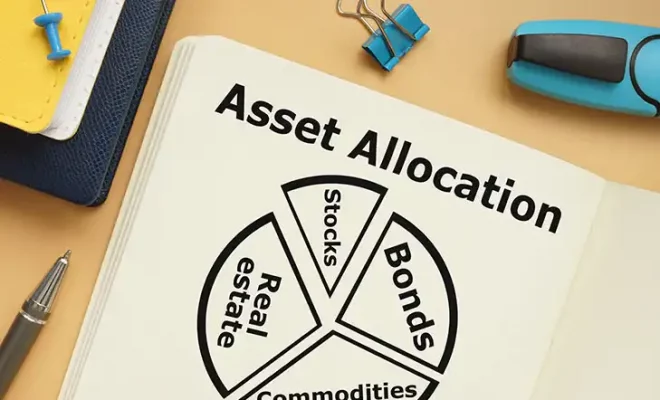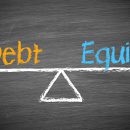7 Reasons Why ETFs Are Getting Popular Among Investors
In order to lead a financially adequate life, it is important to save and invest your money. While your income plays a crucial part in securing your future, what you do with this income truly decides your financial fate. There are many ways to grow your money with investments. Traditional retirement plans like the 401(k) account, an individual retirement account (IRA), pension plans, life insurance plans, etc. are one way to save. Another way includes buying and selling stocks, investing in bonds, mutual funds, real estate, commodities, and more. Out of these ETFs have come up to be a prime addition in many investors’ portfolios. Read on to know more about ETFs and their benefits.
Table of Contents
What are ETFs?
Exchange traded funds or ETFs, as they are popularly known, are similar to mutual funds or index funds and are traded on an exchange. In an ETF, multiple investors pool in their funds to buy shares, bonds, and derivatives. ETFs are increasingly gaining momentum as a viable investment tool. They have many benefits to offer, some of which have been discussed below.
Here are 7 reasons why ETFs are getting popular among investors and how they benefit your portfolio:
1. ETFs offer diversification
The benefits of proper diversification cannot be stressed upon enough. An ETF allows you to invest in a wide range of options with a single investment. This helps in diversification. ETFs offer many possibilities, such as bond ETFs, real estate ETFs, etc. They also expose your portfolio to different asset classes. By investing in one tool, you include various industries and sectors to your investment pool. In times of market volatility, this can help you ride out fluctuations.
2. ETFs are a cost-effective choice
The overall costs associated with ETFs are a lot lower than many other investment instruments. In fact, the low associated fee of investing in an ETF is one of the major reasons for its popularity. Many brokers offer the opportunity to invest in ETFs without charging any commission. Moreover, the expense ratio of ETFs is much lower as compared to mutual funds. So, by choosing to add an ETF to your list of investments, you get to invest in different stocks and bonds, but at a comparatively reduced cost. This can be particularly beneficial to young investors or investors on a tight budget.
3. ETFs offer flexibility
With an ETF, you get a higher degree of liquidity as opposed to mutual funds. While mutual funds are traded at the end of the day after the market closes, ETFs can be traded throughout the day. So, in the case of a mutual fund, the fund company announces the net asset value (NAV) at the end of the day. If you have bought any new shares or sold any old ones during the day, you will get to know the price of each only after the company announces the NAV. However, since ETFs can be traded all day long, the changes in their prices are known to you immediately. As a result, you can buy and sell shares at a more flexible rate. This also means that you can exit from an investment if you want to reduce your chances of suffering from a loss. Moreover, ETFs offer the option of intraday trading, just like stocks.
4. ETFs have many tax benefits
ETFs attract lower taxes, making them a cost-effective option for investors. Ideally, you only pay a capital gains tax on an EFT after it is sold. As compared to mutual funds that incur taxes through the investment, this can be a more tax efficient tool. Moreover, as an investor, the choice of paying taxes lies with you, because you get to decide when to sell your fund and for how long you wish to keep it. But the dividends of an ETF are taxed. The tax charged on qualified dividends (dividend earned when an EFT is sold after 60 days before the dividend payout date) can range between 5% and 15%. On the other hand, unqualified dividends are added to your income and taxed as per the prevailing income tax rate depending on your gross income for the year.
5. ETFs follow passive management
If you prefer passive management over active management, investing in an ETF can be a suitable choice for you. If you pick a passive ETF, you can enjoy benefits such as low risk, low management fees, and less stress. A passive ETF mimics the performance of its benchmark. Most passive ETFs aim to meet the benchmark, but the chances of beating it are quite low. This results in lower management and administration fees. On the other hand, the primary target of mutual funds is to outdo the benchmark. Hence, they require active management that leads to higher fees too.
6. ETFs are simple to understand
Investing can seem a bit daunting to some people. This is especially true for new investors or investors who do not have the time to study the pros and cons of each investment instrument and understand the impact a particular tool can have on their wealth. An ETF is a very simple investment tool. You can opt for passive ETFs to lower the risk. Moreover, the diversification element lets you add varied stocks and bonds to your portfolio with minimal effort, time, and costs. This makes an ETF an easy to comprehend investment choice.
7. ETFs have no entry limits
An ETF can suit any income or age group. There is no minimum entry requirement to invest in an ETF. You can buy as many or as few shares as you want. Hence, regardless of whether you have just started earning, are at the peak of your career or planning for your retirement, ETF can fit into any life stage. If you have other debt liabilities, a low income, or an aversion to risk, you can start by investing a smaller amount of money. However, if you are looking to make significant returns, you can increase your shares gradually. The decision is entirely yours.
To sum it up
ETFs can provide you with many advantages. They come at a low cost, result in fewer taxes, and require less management. They are ideal for all kinds of investors, whether new or seasoned. Moreover, the liquidity and flexibility add to their appeal. However, it does help to get advice on how to get started on investing in these funds. This can enable you to select the right shares that can contribute to your goals.
If you are looking to invest in an exchange traded fund, you can reach out to a financial advisor in your area.



















